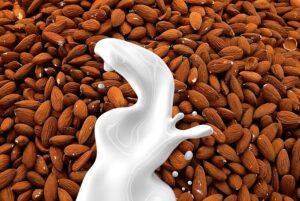Meat and dairy imitations of plant origin: stricter EU regulation is needed
Plant-based products imitating animal-derived foods must be significantly different in name from those of animal origin. In their description and advertisements, they cannot refer to the untruth that their nutritional content is the same as that of products of animal origin. The National Chamber of Agriculture, together with the Copa-Cogeca organization that brings together European producers, draws the attention of EU decision-makers to the creation of relevant market regulations as soon as possible, which also aims to protect consumers.

(Photo: Pixabay)
Copa-Cogeca (the organization of European agricultural producers and producer cooperatives) issued a statement regarding plant-based meat and milk imitations. Plant-based protein products (meat and milk, or even egg imitations) are products made from plant extracts or plant-derived ingredients that try to imitate the sensory properties (shape, texture, taste, smell, etc.) of animal-derived products, as well as their name and they also build on their acceptance. According to their interests, their distributors highlight their similarities to products of animal origin, while also trying to distinguish them, blurring the essential differences.
These products are often “labeled” as substitutes for the original animal products, implying that their nutritional value is the same and that they are interchangeable in the diet
Numerous surveys, reports, and studies prove that the vast majority of consumers do not read the list of ingredients and nutritional values. Instead, many people think that if something is called a veggie “burger” or a vegan “eggs,” for example, the nutritional value must be the same as the original product – which is not the case. For example, according to a study in France, six out of ten consumers believe that plant-based drinks can replace milk nutritionally – despite a large body of scientific evidence to the contrary. Meat is a complex protein source, but plant-based versions do not contain all the essential amino acids, and the content of vitamin B12, zinc, iron and trace elements is lower. Due to misleading information, many people think that the nutritional value of original animal products and plant-based imitations is the same, although this is nowhere near the case. Such misinformation can lead to dietary deficiencies and even more serious health problems.
Both Copa-Cogeca and NAK draw attention to the fact that the EU legislators should ban the use of the names of animal products for plant-based imitations as soon as possible
Furthermore, the advertising and sale of these products as “substitutes” is not permitted. Consumers must not be misled, and the names of products of animal origin – as well as products made mainly from ingredients of animal origin – must be legally protected at EU level. Just as statements referring to nutritional content must also be clear.
NAK
Related news
Not a turnaround, but consolidation: an agricultural outlook for 2026
🎧 Hallgasd a cikket: Lejátszás Szünet Folytatás Leállítás Nyelv: Auto…
Read more >NAK President: more than 120 thousand people signed the agricultural petition in one month
🎧 Hallgasd a cikket: Lejátszás Szünet Folytatás Leállítás Nyelv: Auto…
Read more >Related news
Lidl is building a new administrative and logistics centre in Straubing
🎧 Hallgasd a cikket: Lejátszás Szünet Folytatás Leállítás Nyelv: Auto…
Read more >High-value shopping basket and more conscious shoppers: growing demand for domestic and healthy products
🎧 Hallgasd a cikket: Lejátszás Szünet Folytatás Leállítás Nyelv: Auto…
Read more >From the shopfloor: What the Mere format reveals about retail concentration
🎧 Hallgasd a cikket: Lejátszás Szünet Folytatás Leállítás Nyelv: Auto…
Read more >








